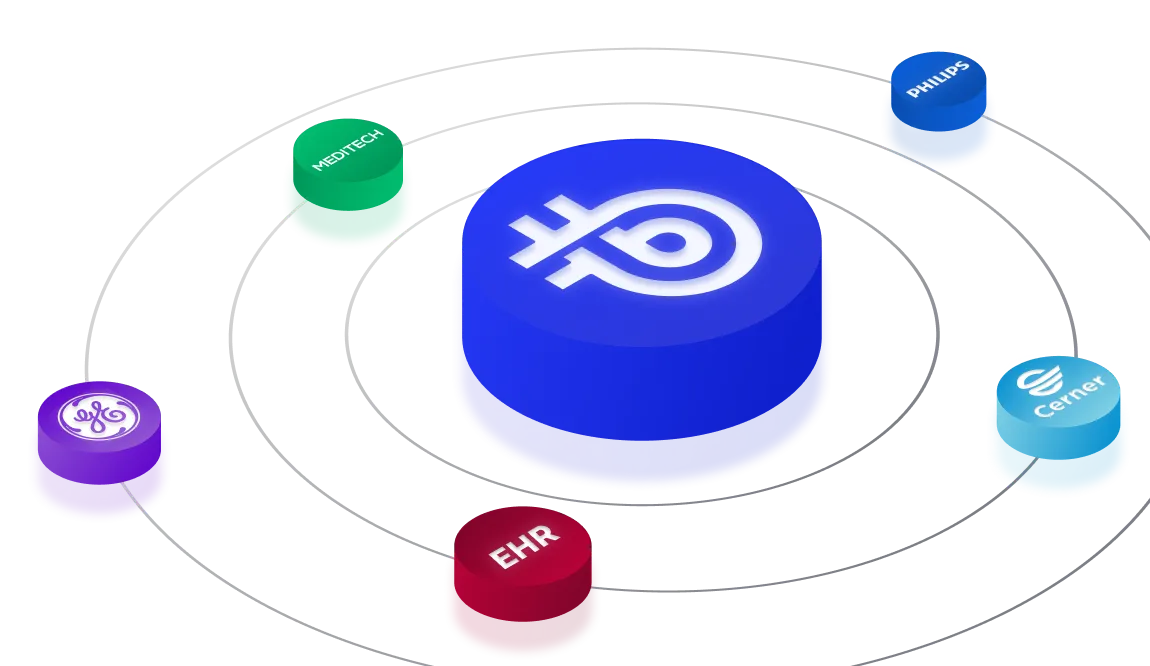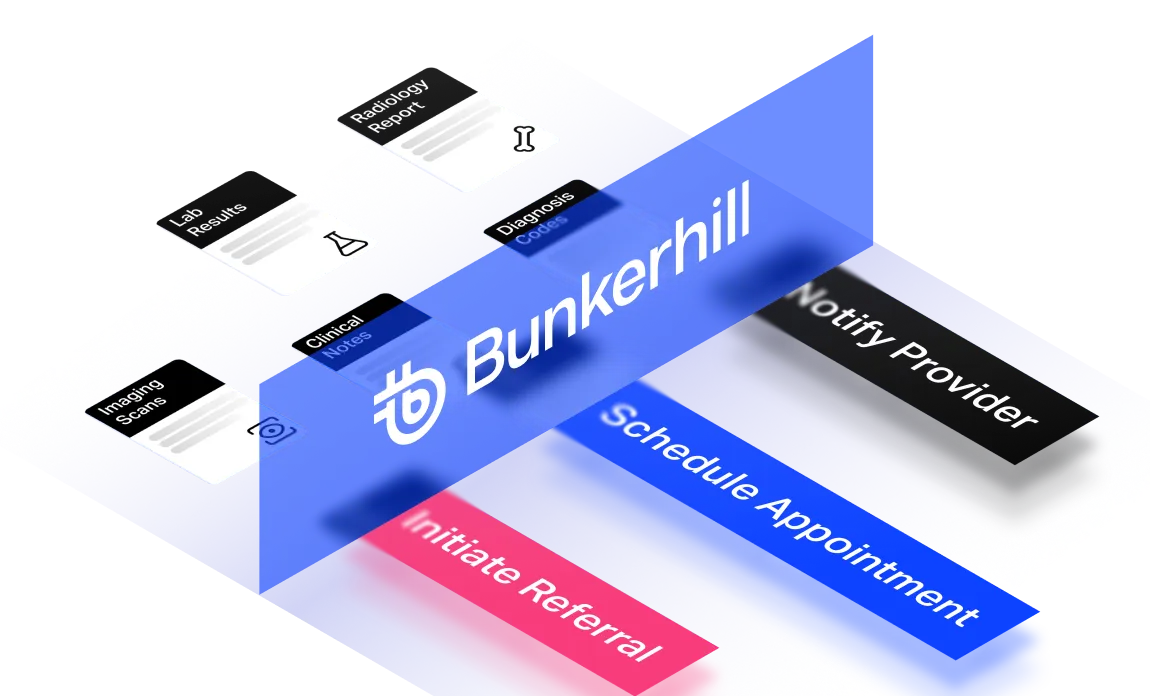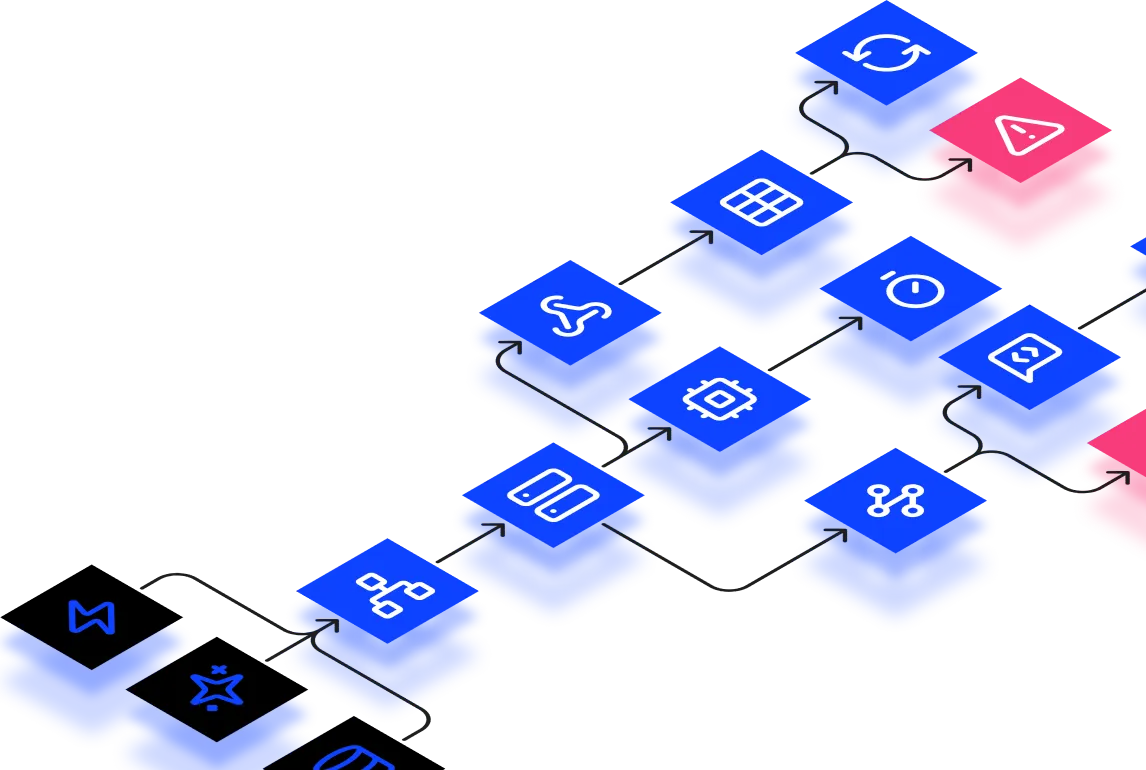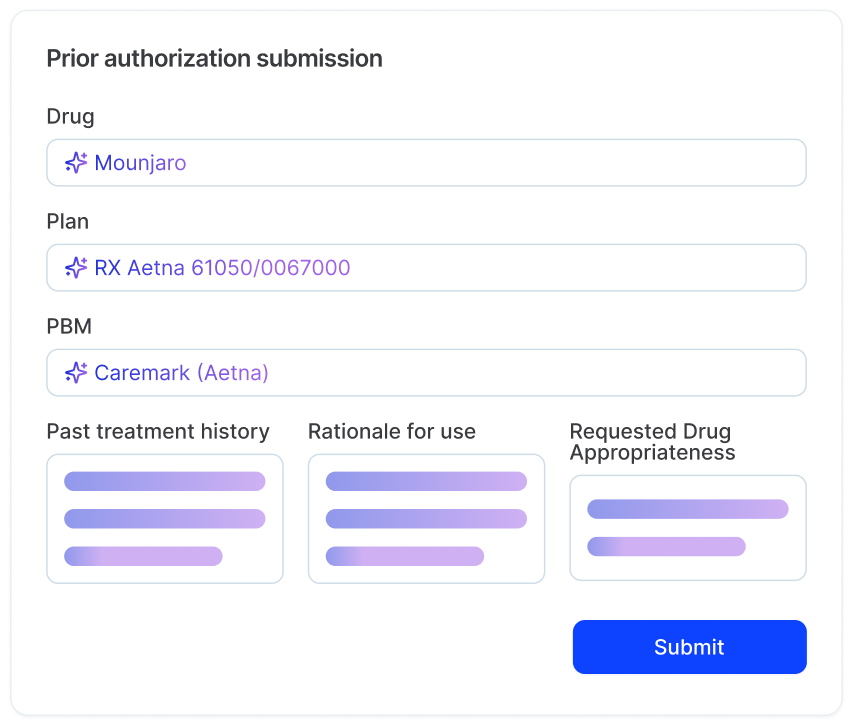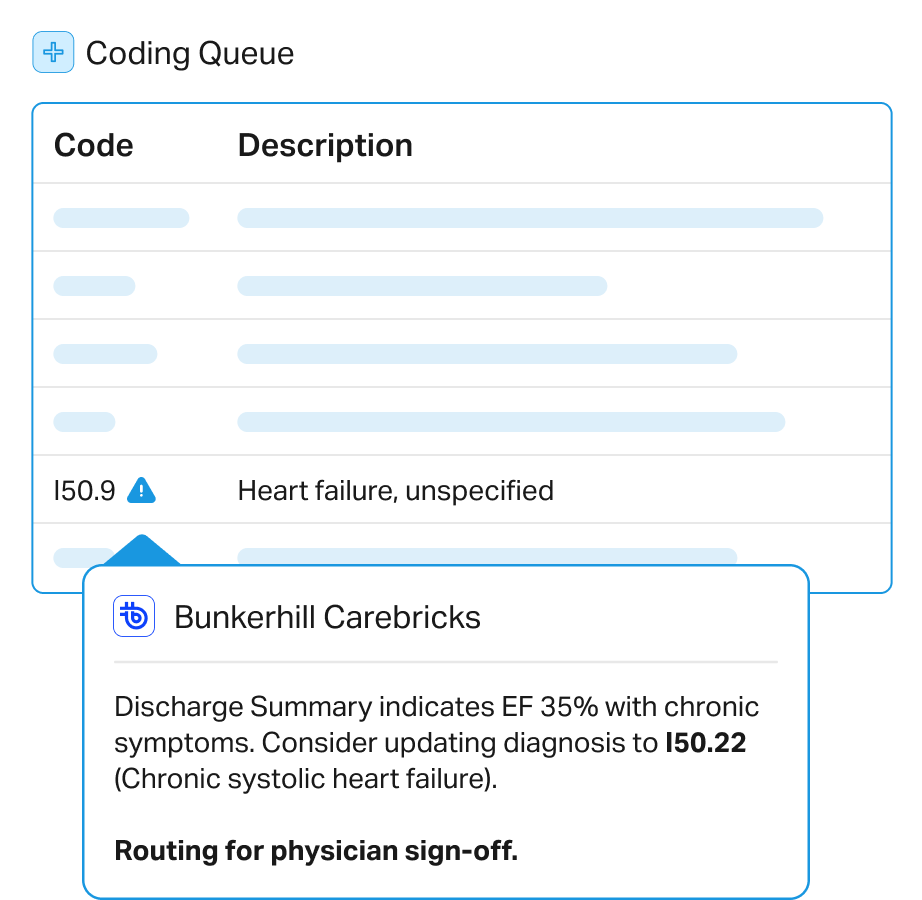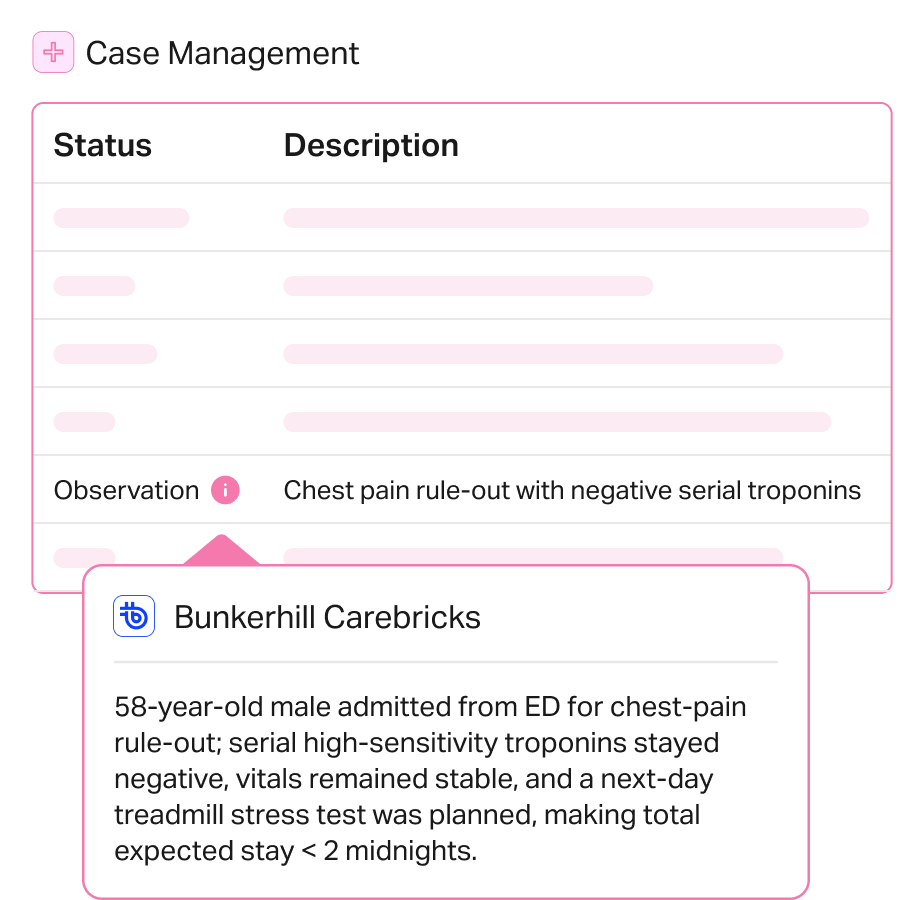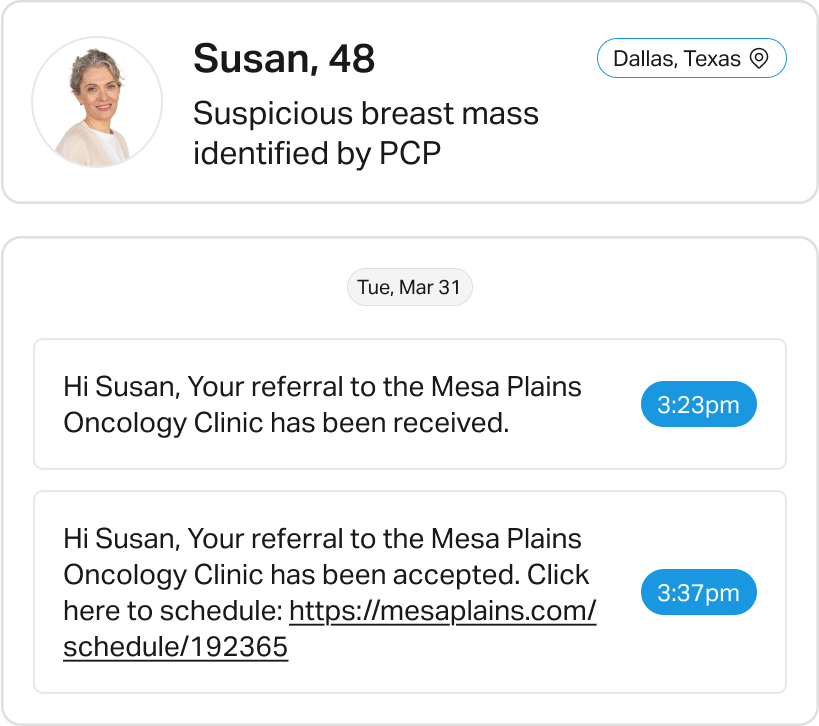Find adults with type 2 diabetes and HbA1c ≥ 9 % despite metformin who have a BMI ≥ 30 kg/m² and are not yet on advanced metabolic agents and add them to the metabolic-intervention study candidate list.
|
Identify trial candidates
Find metastatic colorectal-cancer patients treated this year whose tumors are MSI-high or dMMR and have ECOG 0–1 and add them to the immunotherapy trial candidate roster.
|
Identify trial candidates
Find all inpatients with Foley catheters placed more than 48 hrs ago and a urine culture of at least 100,000 CFU/mL and page infection-prevention nurses to evaluate for CAUTI.
|
Prevent hospital infections
Find lung-cancer patients with an EGFR mutation confirmed on molecular testing whose creatinine clearance is above 30 mL/min and who have not received targeted therapy and add them to the candidate list for EGFR-targeted clinical trials.
|
Identify trial candidates
Find metastatic breast-cancer patients seen this year who are HER2-low with ECOG 0–1 and have not received antibody-drug therapy and add them to the Phase III candidate list for new HER2-low trials.
|
Identify trial candidates
Find hip-fracture admissions discharged this week that meet national registry criteria but lack a registry entry and generate the hip-fracture form and alert the orthopedic data abstractor.
|
Automate registry mapping
Find stroke discharge summaries finalized in the past 24 hrs that list an NIHSS score yet have no entry in the stroke quality registry and pre-fill the quality-registry form and notify the stroke program.
|
Automate registry mapping
Find all adults with confirmed pathogenic BRCA1 or BRCA2 variants who are not yet enrolled in the hereditary-cancer registry and auto-enroll them and send yearly MRI reminders.
|
Automate registry mapping
Find new malignant pathology reports from the last 24 hrs whose tumor site or histology is not yet in the registry and auto-fill the NAACCR record and alert the registrar.
|
Automate registry mapping
Find all ventilated ICU patients intubated for more than 48 hrs with no oral-care documentation in the last 12 hrs and alert nursing leadership to perform and log oral care.
|
Prevent hospital infections
Find all patients with central lines in place for 7 days or more who have a fever above 100.4 °F and no blood culture drawn in 24 hrs and prompt the care team to draw cultures and consider line replacement.
|
Prevent hospital infections
Find all postoperative patients from yesterday who are still receiving prophylactic antibiotics more than 24 hrs after incision closure and send stewardship alerts to stop the drug or document a rationale.
|
Prevent hospital infections
Find immunocompromised adults aged 19–64 who lack documentation of the PCV-20 vaccine and invite them through MyChart to a nurse-run vaccine clinic.
|
Boost preventive screening
Find all patients with a BRCA mutation or first-degree family history of early breast cancer who have never completed genetics counseling or high-risk screening and auto-refer genetics and prompt the patient to schedule an MRI.
|
Boost preventive screening
Find all women aged 40–74 who have an upcoming primary-care visit but have no mammogram documented in the past 2 yrs and add a mammography order suggestion to the pre-chart note.
|
Boost preventive screening
Find all adults aged 45–75 who visited primary care this year but do not have up-to-date colorectal-cancer screening and send an SMS with a self-scheduling link for stool testing or colonoscopy.
|
Boost preventive screening
Find all scheduled cardiac catheterization cases whose authorization will expire before the procedure date and request an extension or reschedule the case if the payer denies.
|
Streamline prior authorization
Find all outpatient knee MRI orders for sports-injury patients scheduled within 5 days that lack the conservative-therapy documentation required by the payer and attach the notes, file the authorization, and update radiology on approval.
|
Streamline prior authorization
Find all Medicare Advantage COPD stays this quarter lacking a documented tobacco-use code that affects RAF scoring and auto-add the code and update the RAF value.
|
Improve case-mix accuracy
Find all orders placed in the last 24 hrs that are flagged as requiring prior authorization but still lack an auth code after 12 hrs when service is needed within 7 days and auto-submit the authorization, notify the team, and appeal if denied.
|
Streamline prior authorization
Find inpatient echocardiograms finalized this week with LVEF ≤ 40 % that are billed under unspecified heart-failure codes and draft corrected ICD-10 and DRG updates for revenue integrity.
|
Improve case-mix accuracy
Find newly diagnosed metastatic lung-cancer patients prescribed osimertinib with no payer authorization recorded 24 hrs before the planned start date and compile the packet, submit to the payer, and alert pharmacy once approved.
|
Streamline prior authorization
Find all recent discharges with sepsis and acute kidney injury noted in progress notes where the summary omits creatinine trends that meet KDIGO stage 2 and prompt the physician to add an addendum documenting AKI stage.
|
Improve case-mix accuracy
Find all COPD admissions this quarter whose notes mention chronic respiratory failure yet lack the ICD-10 code J96.10 and send a coding query to the attending physician with a ready-to-sign update.
|
Improve case-mix accuracy
Find all patients who received routine chest CTs in the last 90 days where Bunkerhill’s FDA-cleared algorithm shows severe aortic-valve calcium and no echocardiogram is ordered and queue an echo order and text the valve clinic about same-day slots.
|
Address actionable findings
Find echocardiogram reports from the past 6 months that show LVEF ≤ 40 % but lack a systolic heart-failure ICD code and notify the electrophysiology referral queue with patient details.
|
Address actionable findings
Find all chest CT reports from the last week that mention a solid nodule ≥ 8 mm but have no pulmonology note or follow-up imaging order and send an alert to the incidental-nodule clinic work queue.
|
Address actionable findings
Find all patients who had a routine chest CT in the past month with moderate or severe coronary calcium detected by Bunkerhill’s FDA-cleared algorithm and message the PCP with statin guidance and a cardiology referral link.
|
Address actionable findings




























